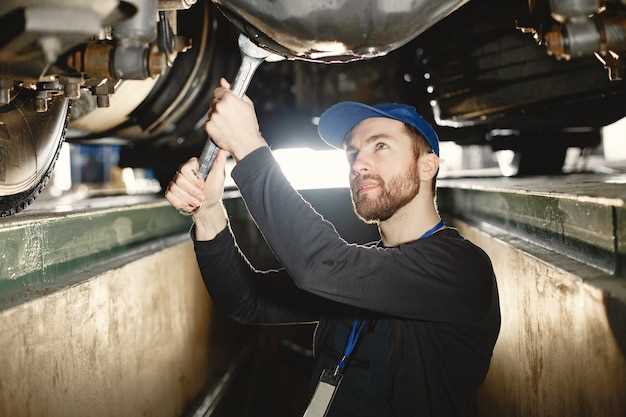

The Clean Air Act is a crucial piece of legislation that has shaped environmental policy in the United States since its enactment. For diesel vehicle owners, understanding the implications of this act is essential for ensuring compliance with emissions standards and maintaining a clean environment. The act aims to reduce air pollution and improve air quality, which directly affects public health and the environment.
Diesel engines, while known for their efficiency and power, are also significant contributors to air pollutants such as nitrogen oxides and particulate matter. As a result, diesel vehicle owners are often faced with strict regulations that govern their vehicles’ emissions. Compliance with the Clean Air Act is not just a legal requirement; it is also a responsibility that helps in preserving the clean air we all depend on.
This article will explore the key components of the Clean Air Act relevant to diesel vehicle owners, including the standards set for emissions, the monitoring of compliance, and the resources available for those seeking to understand and abide by these regulations. By equipping yourself with this knowledge, you can ensure that your vehicle remains compliant while contributing to cleaner air for future generations.
Key Emission Standards for Diesel Vehicles

The Clean Air Act establishes crucial emission standards aimed at reducing air pollution from diesel vehicles. Diesel engines are known for their efficiency but can produce significant amounts of nitrogen oxides (NOx) and particulate matter (PM). To address these concerns, regulatory agencies have implemented specific standards to limit harmful emissions.
Under the Clean Air Act, the Environmental Protection Agency (EPA) sets stringent limits on the allowable levels of NOx and PM in diesel vehicles. The most notable set of standards is the Tier 2 Vehicle Emission Standards, initiated in 2000, which required manufacturers to reduce emissions gradually until achieving compliance across all new vehicle models.
In 2010, the EPA further introduced the Heavy-Duty Diesel Engine Rule, which established more stringent limits for NOx and PM emissions from heavy-duty trucks and buses. This rule mandates that newer diesel engines produce significantly lower emissions, thus improving air quality and public health.
Another critical aspect is the certification process for diesel engines, ensuring they meet the stipulated emission limits before entering the market. Vehicle owners should be aware that compliance with these standards is not only a regulatory requirement but also essential for maintaining a cleaner environment.
In summary, understanding the key emission standards set forth by the Clean Air Act is vital for diesel vehicle owners. Awareness of these regulations can lead to better maintenance practices, adherence to laws, and contributions toward cleaner air for all. As technology evolves, staying informed will help ensure ongoing compliance and environmental responsibility.
Steps for Ensuring Compliance with the Clean Air Act
Diesel vehicle owners must take certain actions to ensure compliance with the Clean Air Act, which aims to regulate air pollution and protect public health. Here are essential steps to follow:
First, familiarize yourself with the emission standards set forth by the Environmental Protection Agency (EPA) for diesel engines. These standards dictate the allowable levels of pollutants such as nitrogen oxides (NOx) and particulate matter (PM). Knowing these benchmarks is crucial for understanding your obligations under the act.
Next, maintain your diesel vehicle regularly. Routine maintenance helps ensure that the engine operates efficiently and within the required emission limits. This includes changing the oil, replacing air and fuel filters, and inspecting the exhaust system for leaks or damage.
Consider investing in after-treatment technologies like diesel particulate filters (DPF) or selective catalytic reduction (SCR) systems. These technologies can significantly reduce harmful emissions and help your vehicle comply with regulatory requirements.
Stay informed about any local, state, or federal regulations that pertain to diesel emissions. Compliance is not just about meeting federal standards; local jurisdictions may have specific requirements that you must also adhere to.
Finally, keep precise records of your vehicle’s maintenance and emissions testing. Documentation serves as proof of compliance and can be vital if you are subject to inspections or enforcement actions related to the Clean Air Act.
Impact of Non-Compliance on Diesel Vehicle Owners

Non-compliance with the Clean Air Act can have significant repercussions for diesel vehicle owners. This federal legislation mandates specific emissions standards aimed at improving air quality and reducing harmful pollutants. When diesel owners fail to adhere to these regulations, they may face both legal and financial consequences.
Firstly, fines and penalties are a common repercussion for those who do not comply with the act. Regulatory bodies have the authority to impose substantial monetary penalties on individuals or businesses operating non-compliant diesel vehicles. These fines can accumulate quickly, placing a heavy financial burden on the owner.
Additionally, non-compliant vehicles may be subject to mandatory inspections and repairs. Authorities can require diesel vehicle owners to bring their vehicles into compliance, which might involve costly upgrades or modifications to meet emissions standards. Such financial investments can be unexpected and challenging to manage for many owners.
Moreover, the reputational impact of non-compliance shouldn’t be underestimated. Diesel owners who repeatedly violate the Clean Air Act risk damaging their standing in the community and among peers. This can lead to a loss of business opportunities, especially in industries where environmental responsibility is increasingly emphasized.
Furthermore, individuals who ignore compliance may face increased scrutiny from both regulators and the public. Diesel vehicles that are flagged for emissions violations can lead to heightened regulatory oversight, prompting more frequent inspections and penalties for subsequent infractions.
Finally, beyond legal and financial implications, the broader impact of non-compliance affects air quality and public health. Diesel emissions contribute significantly to air pollution, which can result in increased health risks for the community. Diesel owners who remain non-compliant indirectly harm their neighborhoods, making awareness of compliance critical for both individual and collective well-being.







